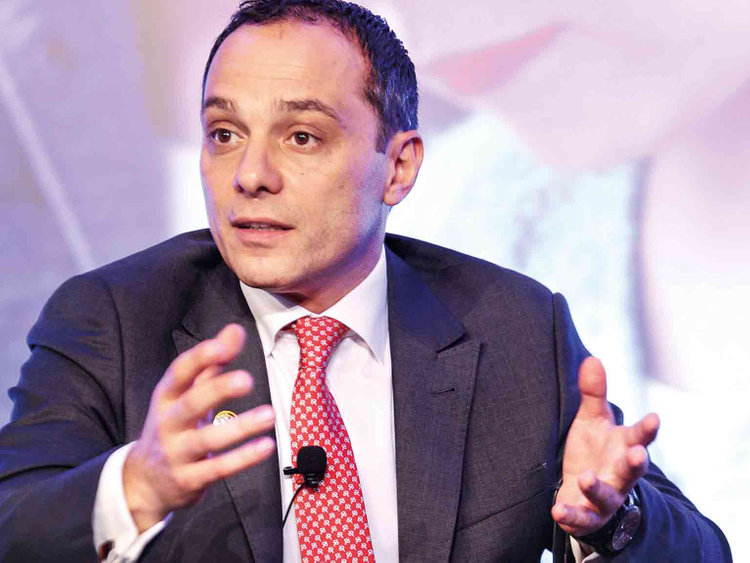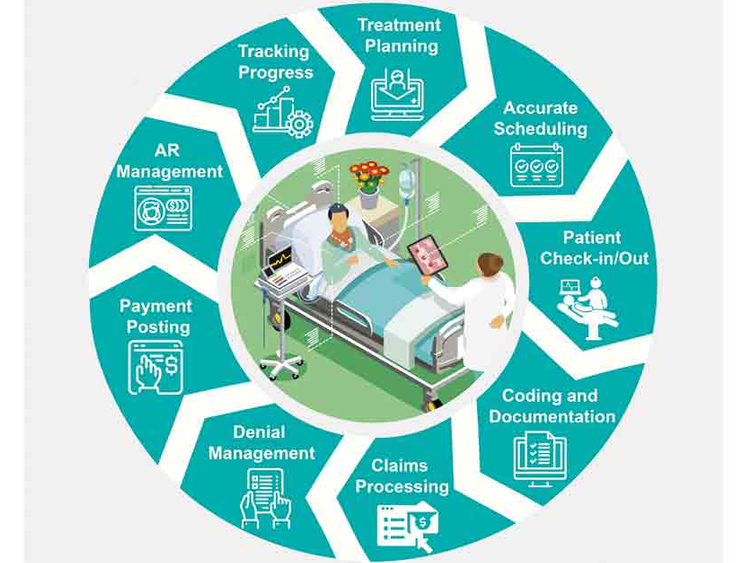A crucial balance in every healthcare organisation is to deliver quality patient care and improve customer satisfaction profitably. That’s why a complete view of the patient from an administrative, clinical, and financial perspective is critical. This allows for more informed decision-making, increased patient satisfaction and faster, more accurate payment completion.
Complexities
Without this visibility into patient care interactions, revenue cycle management (RCM) can only address a small fraction of the complete picture.
The RCM process is not an easy journey. Healthcare organisations often face complex situations as many factors (especially clinical reporting) impact the ability to efficiently collect revenue. The longer it takes between patient care being delivered and receipt of payment can have lasting negative effects on the hospital.
Seventy six per cent of hospitals – ranging in bed size from 50 to 500 – said denials were the biggest challenge they faced with RCM, according to a new HIMSS Analytics report. The report also shows that healthcare organisations that use multiple RCM systems have higher rates of denials and big difficulties gathering and normalising data.
Thankfully, hospitals can now rely on efficient solutions that help measure, streamline, and manage the payment process.
One of the leading solutions that have a strong Middle East presence is InterSystems TrakCare unified healthcare information system. TrakCare, with its unified RCM and clinical capabilities, allows healthcare providers to have a holistic view of their patient interactions in a single platform from an administrative, clinical, and financial perspective. With TrakCare, the patient journey is seamless; patients spend less time waiting, they avoid unnecessary testing, and they experience smoother care transitions.
Process automation
TrakCare unifies the business and clinical sides of healthcare by coupling administrative data, such as a patient’s name, insurance provider and other personal information, with the treatment a patient receives and their healthcare data. This makes it possible to highly automate insurer claims processing and patient billing, reduce revenue leakage, and streamline the reporting process.
TrakCare enables clinicians to access a holistic view spanning both the patient’s clinical history and their potential out-of-pocket costs instantly, allowing them to discuss potential costs and receive informed consent on the spot.
This can be achieved while handling complex multi-payer situations and compliance reporting requirements. Clinicians can focus on treating patients, instead of worrying about a potential break in workflow that might impact billing.
Many healthcare providers already deliver a range of multi-appointment care plans in addition to bundled care services. These can require a much more sophisticated view of how costs and payer payments interact throughout the care journey. Flexibility and in-depth visibility into these complex interactions become essential for RCM, especially when you have a mix of “fee for service” and “value based” care payments.
By providing clinicians with readily accessible out-of-pocket patient cost information, TrakCare can help enable an enriched level of patient conversation, reducing the time needed to complete patient consultations, while improving pricing transparency. Informed consent also gives healthcare providers an opportunity to proactively handle situations where the patient is likely to face difficulties paying for appropriate care. All of these add up to improved patient satisfaction.
Future challenges
Furthermore, while healthcare providers are streamlining their current profitability situation, they need to keep an eye on future challenges such as patient privacy issues, expansion projects and interoperability. TrakCare helps organisations address all of these current and future challenges so that hospitals in the Middle East can do what they do best: provide world-class patient care.
TrakCare has enabled many hospitals in the Middle East to achieve HIMSS EMRAM Stage 7 and 6 awards and was honoured earlier this year with the KLAS Category Leader award for Global (non-US) Acute Care EMR for the Middle East region for the third year in a row.
- The writer is Managing Director for the Middle East, Italy, and India, InterSystems. To learn more about TrakCare Revenue Cycle Management workflows, contact InterSystems Middle East team at MEmarketing@InterSystems.com














